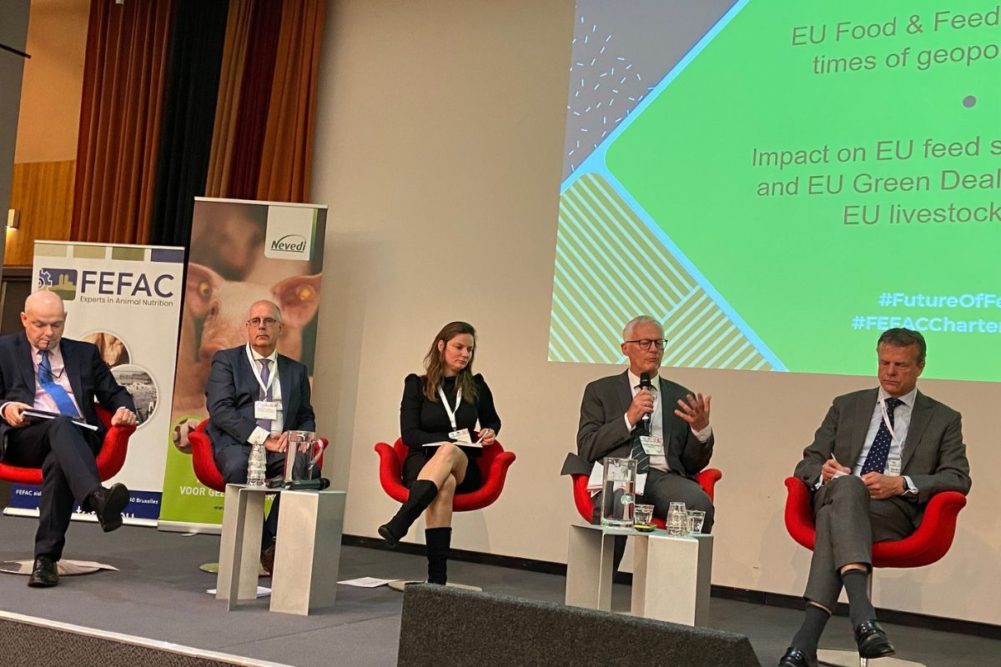UTRECHT, NETHERLANDS — A main concern for the European feed industry is what the world supply situation will look like six months from now, said Asbjorn Borsting, president of FEFAC, during a press conference with journalists.
“Looking at the impact of the Black Sea situation and Ukraine production, you probably have supply enough for most of the raw materials until sometime after New Year’s,” he said. “But then the situation, depending on the harvest in Ukraine and depending on logistical bottlenecks, it could be critical.”
Borsting spoke in between sessions of FEFAC’s Annual Public Meeting, which was collocated with VICTAM International on June 2 in Utrecht, Netherlands.
He’s concerned about process developments of some commodities come spring 2023, especially if yields go wrong in some parts of the world.
“We don’t have space enough,” Borsting said. “I really hope that within some months we are getting good solutions for all of the logistical challenges we are now facing with Ukraine and Russia.”
But other concerns remain that aren’t completely related to the war in Ukraine.
For example, the region’s dependence on additives from China. Organic protein imports, again predominantly from China, have been a significant challenge for feed companies in Europe, Borsting said.
“We have to find solutions,” he said. “We need some extra supplies of organic materials.”
The situation the last two years, from COVID to the war in Ukraine, raises the question whether some adjustments should be made to the EU’s Farm to Fork strategy.
“Not in the total sustainability direction, but I think there could be some elements in it that could be reevaluated,” Borsting said.
The plan calls for reducing the environmental and climate impact of primary production while ensuring fair economic returns for farmers.
A new bioenergy proposal from the EU commission that calls for expansion of biogas production by 2030 is also of concern, he said.
“It will increase demand for biomass,” Borsting said. “It will also have some impact on our agricultural policies in the years to come.”
Re-legislation of additives is another concern for the European feed industry, said Alexander Doring, FEFAC secretary general, general policy.
Additive producers don’t see the return on investment as demands in authorization requirements go up along with the costs.
“From a user perspective, we fear that we could lose a lot of additive substances because there simply is not enough economic interest to defend certain additives,” Doring said. “We’re trying actively with the feed industry to look at the situation on how we can support and defend them.”
Looking at the big picture and impact of the war in Ukraine, Borsting noted that many in his generation are strong believers in the value of free trade in world. The focus was on tackling challenges surrounding technical trade barriers. The COVID pandemic and war in Ukraine is something new.
“It’s a kind of new global barrier to trade,” he said. “Of course it means we will have some discussions about the clever balance between our European regional self-sufficiency of different raw materials and our import/export balances. I think maybe it is also worthwhile to learn again that old alliance partners have real value here, partners who share the same economic and trade values.
“I think there is a lesson to learn that we are not going completely into a free trade world, but we have to find clever balances.”



